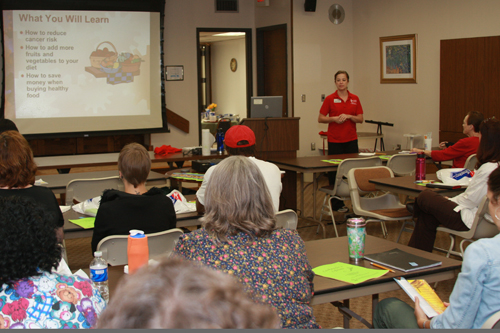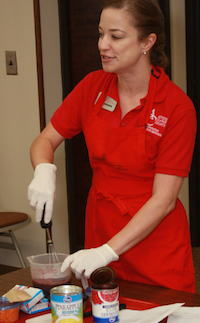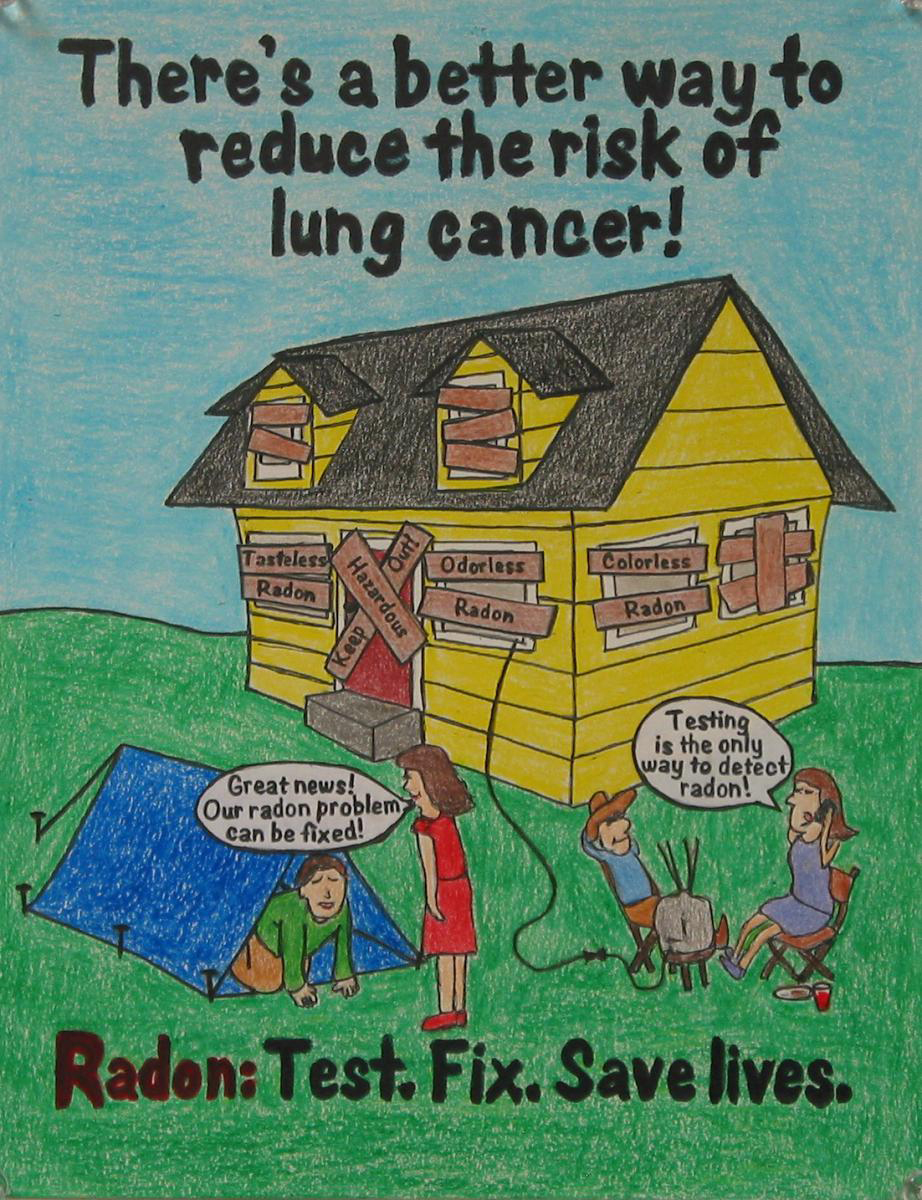More than 40,000 people are diagnosed with cancer each year in Georgia, according to the Centers for Disease Control and Prevention, and nearly 15,000 die. The exact cause of cancer is unknown. But there are ways to help prevent this deadly disease.
“More and more, research on chronic diseases has shown that what we eat and how active we are influences our risk for these diseases and even our chances for recovery or effective long-term management if we become ill,” said Connie Crawley, a nutrition expert with University of Georgia Cooperative Extension. “Overall, a plant-based diet that emphasizes whole grains, fruits and vegetables, low-fat or non-fat dairy foods and small amounts of nuts and vegetable oils seems to be the most protective.”
UGA Extension agents across the state routinely hold classes to teach people about cancer and what steps they can take to limit their risk for it. Eating well and leading a healthy lifestyle can reduce the risk of cancer by up to 50 percent, according to the National Cancer Institute.
Cooking class
“We teach families how they can eat healthy, but still eat well, while improving their health and reducing their risk for chronic disease,” said Denise Everson, UGA Extension Family and Consumer Sciences agent in Oconee County.
Nancy Dennis came to one of Everson’s classes to help her family.
“I have a 12-year-old son, and he is a getting to be a little bigger. I don’t want him to have obesity issues as he grows,” Dennis said. “I need to learn how to cook healthier and change my eating habits.”
Manage risk
“We are exposed to carcinogens everyday,” Everson told the class. “There are no miracle foods or proven causes. We only know what makes developing cancer less likely.”
Eating saturated fats, or those found in whole milk products and meat and poultry skins, can increase cholesterol levels. Everson recommended consuming unsaturated fats like those found in vegetable oils or omega-3 fatty acids found in fish such as salmon or tuna.
To cut fat and cholesterol, Crawley says to:
- Bake, broil, boil or grill food.
- Choose lean cuts of meat like loin, leg or round cuts.
- Remove skin from poultry.
- Eat vegetables, whole grains or fruits.
- Eat fish twice a week.
- Season food with fat-free broth or herbs and spices instead of fatty meats or butter.
- Choose low-fat and non-fat dairy foods.
- Use ground turkey breast and ground chicken breast.
- Eat less lunchmeats and prepared meats.
- Replace whole eggs in recipes with egg whites or egg substitute.
- Choose “light” or “heart healthy” menu items when dining out.
Knowing portion size, Crawley said, is important. A portion of vegetables, fruit or grains is half a cup, or about a handful. Meat portions should be 3 ounces, or the size of a deck of cards. A ping pong ball is the size of a portion of peanut butter, or 2 tablespoons.
Get Moving
Get moving 30 minutes or more every day. “For cancer, the more vigorous and regular the physical activity is, the better the reduction in risk,” Crawley said. “For most other chronic diseases, moderate activity for about 30 to 60 minutes seems to be enough.”
Plan well to make slow, realistic changes.
“We learn to crave sweet and salty foods, and we can change our habits,” Everson said. “The simple steps we take today, improved eating habits and an active lifestyle, can decrease our risk for chronic disease and improve our overall well-being.”
For more information on healthy life choices or similar classes in your area, contact a local UGA Extension office at 1-800-ASK-UGA1.











